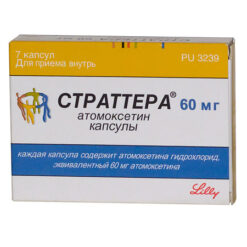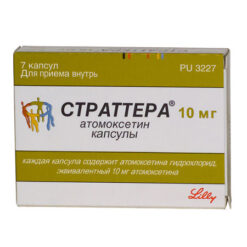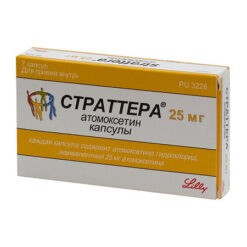-
×


-
×


-
×


-
×


Subtotal: €176.55








Subtotal: €176.55








Subtotal: €176.55
€1.00
Out of stock
(E-mail when Stock is available)
Quetiapine is an antipsychotic (neuroleptic).
It has a higher affinity for serotonin receptors (5-HT2) than for dopamine D1 and D2 receptors in the brain.
It has tropism to histamine and alpha1-adrenoreceptors, less active towards alpha2-adrenoreceptors.
There is no selective affinity for m-choline and benzodiazepine receptors.
Decreases the activity of mesolimbic A10-dopaminergic neurons compared to A9-nigrostriate neurons involved in motor function.
It does not cause a prolonged increase in prolactin concentrations.
The duration of binding to 5-HT2-serotonin and D2-dopamine receptors is less than 12 hours.
Acute and chronic psychoses (including schizophrenia); manic episodes in the structure of bipolar disorder.
Quetiapine is an antipsychotic (neuroleptic).
Shows higher affinity for serotonin receptors (5-HT2) than for dopamine D1 and D2 receptors in the brain.
It has tropism for histamine and alpha1-adrenergic receptors, and is less active towards alpha2-adrenergic receptors.
No selective affinity for m-cholino- and benzodiazepine receptors was detected.
Reduces the activity of mesolimbic A10-dopaminergic neurons, in comparison with A9-nigrostriatal neurons involved in motor functions.
Does not cause a long-term increase in prolactin concentrations.
The duration of connection with 5-HT2-serotonin and D2-dopamine receptors is less than 12 hours.
There was no relationship between taking quetiapine and an increase in the QTc interval. However, when using quetiapine simultaneously with drugs that prolong the QTc interval, caution must be exercised.
In children, adolescents and young people (under 24 years of age) with depression and other mental disorders, antidepressants, compared with placebo, increase the risk of suicidal thoughts and suicidal behavior. Therefore, when prescribing antidepressants in children, adolescents and young adults (under 24 years of age), the risk of suicide should be weighed against the benefits of their use.
In short-term studies, the risk of suicide did not increase in people over 24 years of age, but it decreased slightly in people over 65 years of age. Any depressive disorder itself increases the risk of suicide. Therefore, during treatment with antidepressants, all patients should be monitored for early detection of disturbances or changes in behavior, as well as suicidality.
During the treatment period, care must be taken when driving vehicles and engaging in other potentially hazardous activities that require increased concentration and speed of psychomotor reactions.
Quetiapine
1 film-coated tablet contains:
Hypersensitivity to any of the components of the drug.
With caution: Hypotension, epilepsy and epileptic seizures (history).
From the nervous system: drowsiness, dizziness, headache, anxiety, asthenia, hostility, agitation, insomnia, akathisia, tremor, convulsions, depression, paresthesia, neuroleptic malignant syndrome (hyperthermia, muscle rigidity, altered mental status, lability of the autonomic nervous system, increased creatine phosphokinase activity).
With simultaneous administration of drugs that have a strong inhibitory effect on CYP3A4 (such as azole antifungals and macrolide antibiotics), the plasma concentration of quetiapine may increase.
In a dry place, protected from light, at a temperature not exceeding 25 °C
2 years
Kanonpharma production CJSC, Russia
| Shelf life | 2 years |
|---|---|
| Conditions of storage | In a dry, light-protected place at a temperature not exceeding 25 °C |
| Manufacturer | Kanonfarma Production ZAO, Russia |
| Medication form | pills |
| Brand | Kanonfarma Production ZAO |
Buy Quetiapine, 200 mg 60 pcs with delivery to USA, UK, Europe and over 120 other countries.